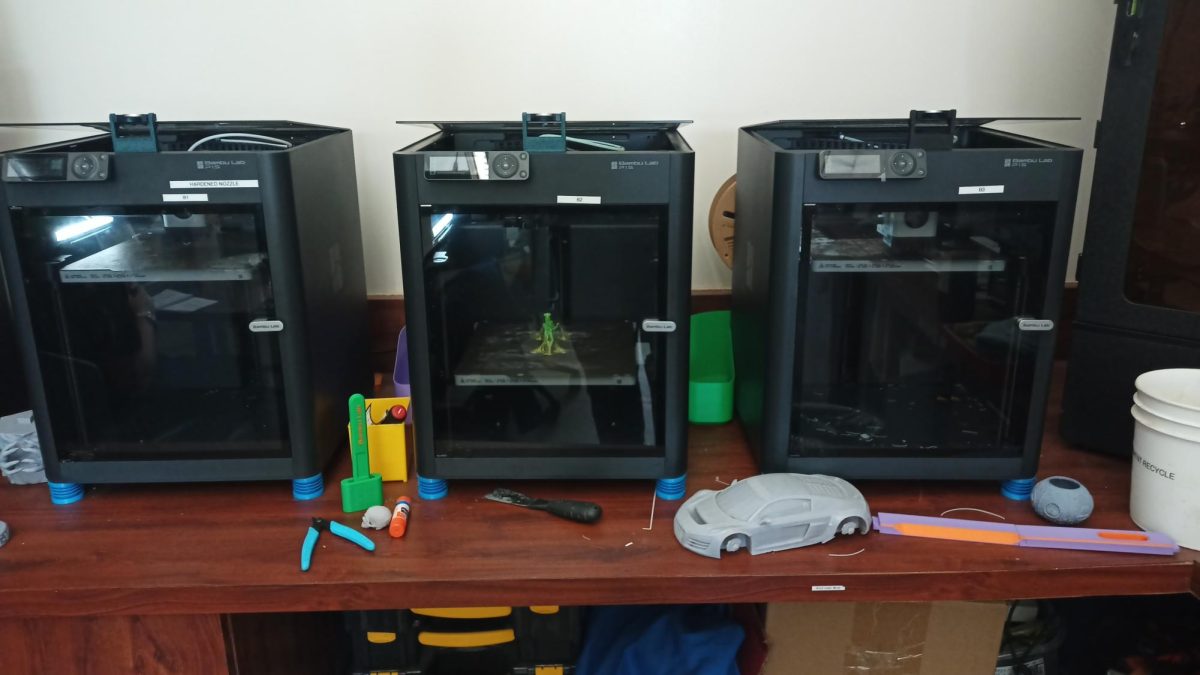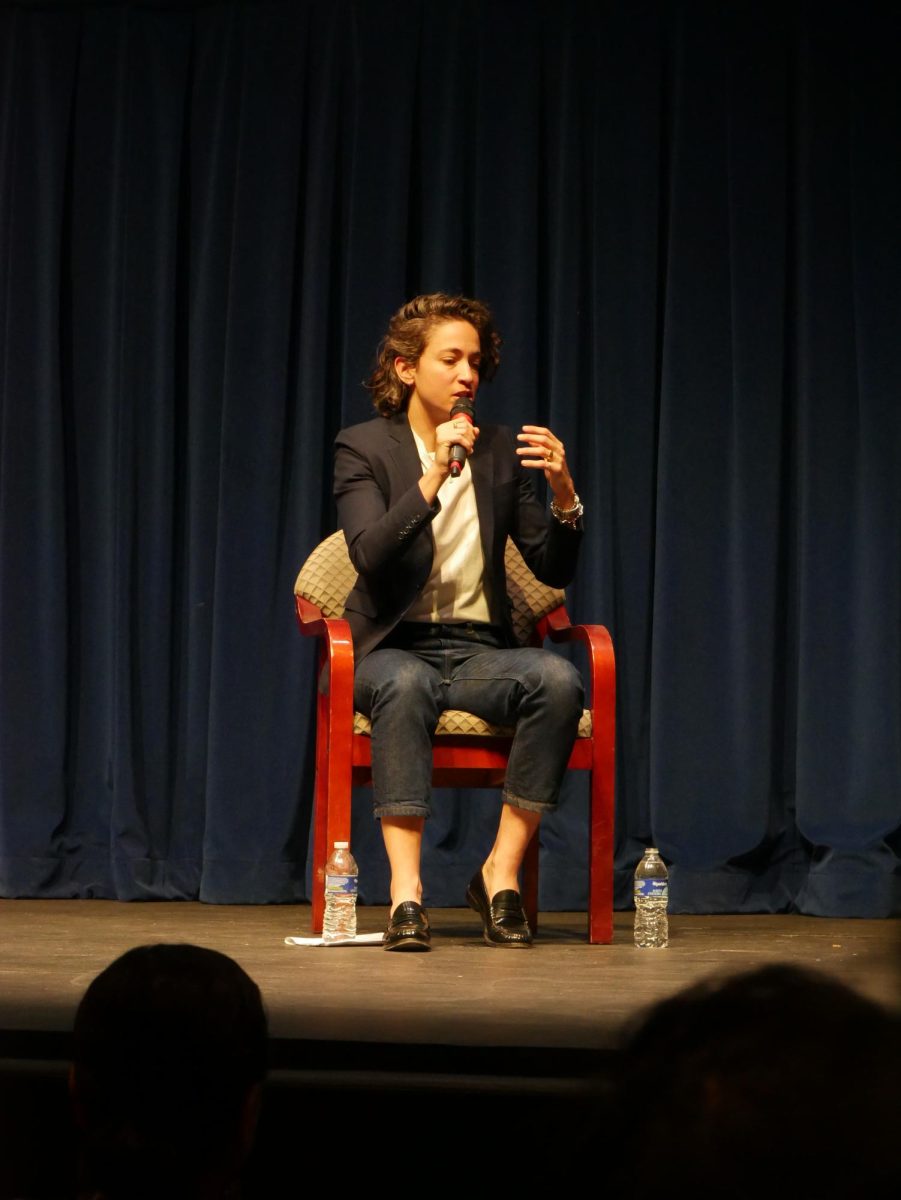By Krystal Bradford
Special to The Runner
Editor’s Note: This essay won first place in the Runner Reader essay contest. The essay was originally titled “There is a Thin Line between Helping and Making a Name for For years, doctors and researchers have taken samples from medical patients, many times without the full understanding and consent of their patients. They have passed pieces of patients around the world without their consent as if they are something disposable and less than human. Although, it may seem fun for people to blame doctors solely; it is doctors mainly who have turned away from a good deal of this.

It is medical researchers with the help of some doctors that run tests and biopsies, collecting samples from well-meaning patients who want to get better that push the problems in the medical research industry. These problems are doctors and researchers spreading around patients’ information without their knowledge or consent to other doctors and researchers.
Another problem that this creates is a breach in doctor-patient-confidentiality and a blurred line between what doctor-patient information can and cannot be shared.
In the novel The Immortal Life of Henrietta Lacks by Rebecca Skloot, the woman, Henrietta Lacks discovered a lump on her cervix and went to her normal physician for an exam where she was redirected to Johns Hopkins Hospital for further tests. After being examined, it was established that Henrietta had cervical cancer and that she would begin receiving treatment.
For her first treatment, Henrietta was put under anesthesia for surgery to implant radium into her cervix to try to combat and kill the cells. Before the radium could be implanted into Henrietta; however, Skloot writes that Dr. Lawrence Wharton Jr., her surgeon, “picked up one from the healthy cervical tissue nearby” (p. 33).
These two samples were labeled “Henrietta Lacks…Biopsy of cervical tissue…Tissue given to Dr. George Gey” (33). Henrietta had yet to tell her family that she had cancer because she did not want to, and here these two doctors are with samples cervical cancer from her body without her permission or knowledge, with Dr. Wharton, Henrietta’s surgeon not only telling Dr. Gey about it, but also giving them to him. The problem in the case between Dr. Wharton and Dr. Gey is that they did neither told Henrietta what was happening, nor did they seek her permission to do so.
Their focus was centered around their research, instead of the wellbeing and consideration of the patient and what she would have wanted had she known.
“The sad lesson learned inthis true life story… is that regulation in medicine and medical research is essen- tial to make sure that the main priority is the non-disposable and non- replaceable patient.”
Looking at all of what Henrietta Lacks’ cells have done fore medicine today, people can see that it was beneficial and her cells were essentially the key that medical researchers needed then to unlock the cures and vaccines for the many diseases that have been circulating for years. However, viewers can also see the way the doctors handled the situation was unnecessary and should have been illegal had the laws of that time been reformed sooner. People can see the pros of Mrs. Henrietta Lacks’ cells easily when they see the cures and new medicine they’ve helped create, from the common cold and flu vaccines to: how cancer can reproduce and spread. The cons of the discovery of these vaccines all come from Dr. Wharton and Dr. George Gey with a focus on Dr. Gey. Dr. Wharton should not have taken samples from Henrietta Lacks’ cervix without her permission, told another doctor about her cancer, and he should not have given samples of her cervix away. Where Dr. Gey went wrong is that he forgot to think about Henrietta Lacks as a human being with a family friends and feelings, and only thought of her as HeLa, her cells’ name, and passed it on to every other researcher that he gave the HeLa cells to.
What happened to Henrietta Lacks and her cells, and too many other African Americans in the 1900s shows the problem that occurs when people do not see their patient as a human being, but a source of endless and disposable information. This needs to be prevented and there have been many steps taken and rules and guidelines set in place to prevent people from seeing other people as sources of information for their lab experiments, and to create a sort of balance to allow researchers to keep doing their research and keep patients safe. Now, doctors and researchers have to make sure their patients are fully informed and understanding what will be done to their bodies and are allowed to make decisions on what will and will not be done to them. Just because there are laws and regulations in place does not mean that every doctor and medical researcher will follow them, but this does cut down on situations such as Henrietta Lacks’ and provides repercussions for the people who choose not to follow them. The only other way to keep pushing the balancing of the need for medical researchers and patients to both have what they want is to keep the laws that are in place and regular checkups on institutions practicing medicine and research.
As for Henrietta Lacks and her family, Mrs. Lacks did not survive her fight with cancer. Her cancer won in their fight, causing her to leave her husband, babies, and other loved ones behind. Many years later, her family found out about what Dr. Wharton and Dr. Gey did and how her cells had reproduced so much by the time they found out that put together, HeLa cells could cover the earth. When Henrietta Lacks finally passed away from her cancer, there were several masses on almost all of her vital organs. The masses on her vital organs are what caused her loss against cancer, or rather the one on blocking her bladder which caused the toxins in her body to not be able to pass through.
Even this could have been avoided had her doctors listened to her claims that her cancer was spreading and had checked to see if her claim was valid. The sad lesson learned in this true life story of Mrs. Henrietta Lacks, more commonly known as HeLa, is that regulation in medicine and medical research is essential to make sure that the main priority is the non-disposable and non-replaceable patient.







